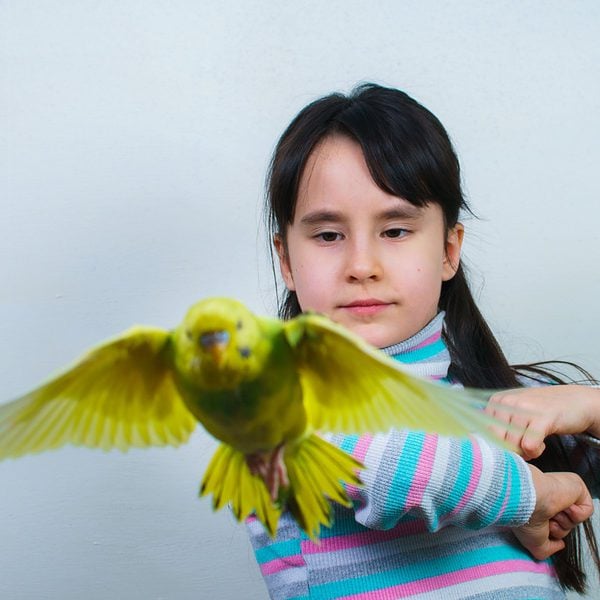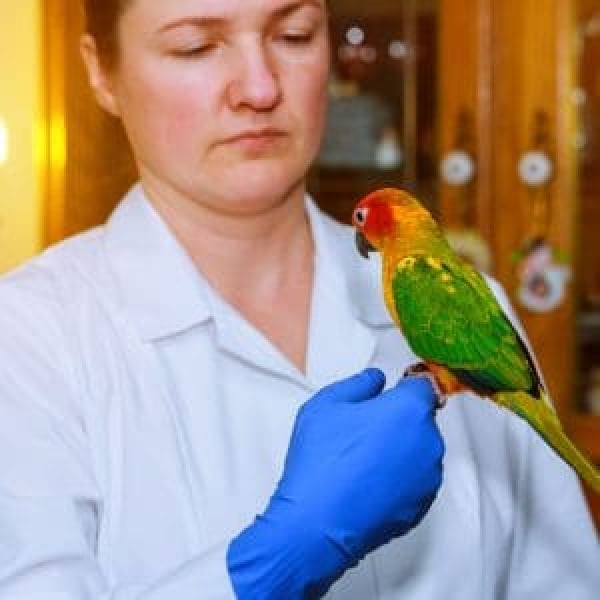
Avian Bornavirus – What Do You Know About This Bird Centric Disease?
Last Updated on by Catherine Tobsing
Jon Commented:
This was my first time at your store. I loved it!
I have 2 White Bellied Caiques (WBC) and a Green Cheek Conure (GCC).
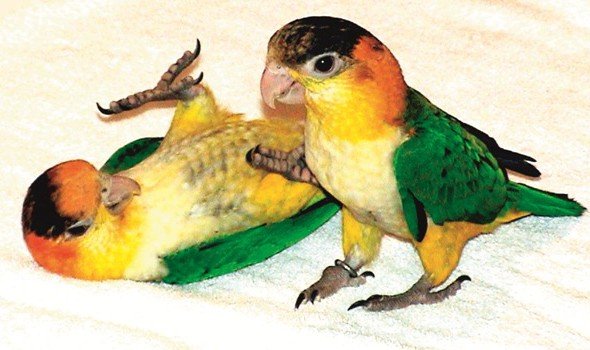
One of my WBC, Jaden, has the Bornavirus and has been near death many times his first year and a half.
We upped his Celebrex and he’s been free of symptoms for 11 months.
He only gets Harrison’s High Potency with some soft fruits.
We don’t want his tummy to get aggravated in the least.
So unfortunately he doesn’t get seed treats or anything else.
We are always looking for treats that won’t hurt his stomach.
Do you have any suggestions for other treats that don’t have hard seeds in them or even bits of seed with the exception of ones that have been ground up which is OK like Harrison‘s type granular?
Do you have other customers that have a bird with Bornavirus and are there any things we can learn from what works for their birds as far as treats go?
Any suggestions are always welcome as we’re always learning to improve our bird’s health and vitality.
Thank you so very much,
Jon
Hey Jon
First a little housekeeping.
Bornavirus generally affects nerve cells and is considered a neurotropic virus similar to rabies, herpes virus, Poliovirus, and Japanese Encephalitis.
Its name comes from the town of Borna in Saxony, Germany where the bornavirus was discovered circa 1885 in cavalry horses.
Many domestic and feral animals can get it like horses, cattle, sheep, birds, dogs and even foxes.
In the year 2000, the Swedes isolated BVD from wild birds like mallards and jackdaws.
Ostrich farms in Australia have even seen BVD cases as well.
In 2008 Bornavirus was found in pet birds by researchers catUCSF while studying Proventricular Dilatation Disease (PDD)
The scientists were able to isolate a negative-stranded RNA virus which turned out to be part of the Bornaviridae family which was then aptly named ‘Avian Bornavirus’ (ABV).
Without getting any more technical the disease prevents animals the ability to digest their food properly.
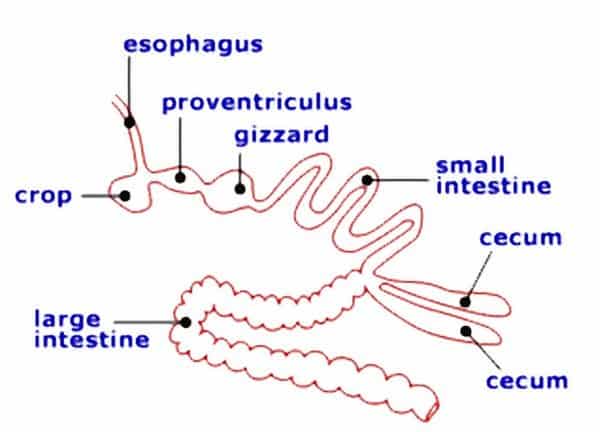
PDD causes a severely dilated thinwall of the proventriculus which may rupture which means undigested food will find its way into the bird’s abdominal cavity which does nothing but trigger infection and oftentimes death.
What’s interesting, the lab that we used for DNA testing received feathers from six birds and five of the six tested positive for ABV and although the birds had no rapid weight changes in either direction all the birds were pluckers.
A preventative measure would be to have your bird tested to help prevent the disease not spreading.
If the bird tested positive you’re going to want to disinfect the contaminated area using an oxidizer solution like diluted bleach 50 parts to one a little dish soap wouldn’t help because it will act as a wetting agent.
Unfortunately, ABV has no treatment that we know of. Your vet can test for AVV/PDD which we would suggest especially if one brings in new bird into the house.
Jon, Kudos for your your efforts in saving this bird in going to great lengths for it.
Just a note about Harrison’s Organic and non GMO bird food pellets – typically after six months they recommend migrating from High Potency to Daily Maintenance.
Pellets are counterintuitive to birds and they will not always readily accept them as you can see but there’s a few things you can do. Moisten them with juice like apple or orange.
Pull all other food out of the cage at night leaving only the pellets. Many birds enjoy middle-of-the-night snacks so this may work.
I reached out to Melanie at HARI Hagen head of customer service.
Also, a bird companion and breeder for 25 years.
This was her response:
HI Mitch,
Since the proteins are much easier to digest, this will help with nutrient assimilation in the bird’s body.
It’s also helpful that Hagen Alternative Formula pellet ingredients include montmorillitnite clay-which also soothes the GI tract.
The clay is a mid-ingredient in the Alternative Formula, so I would also suggest sprinkling Hagen HARI Clay-Cal™ on this bird’s soft foods once or twice a week.
The customer needs to tell her vet that she is offering the clay just in case the bird has to be on an antibiotic.
Melanie
Jon, I Hope that helps
Best
MitchR
Author Profile
Latest entries
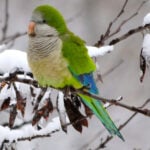 The Traveling BirdJune 26, 2025Can You Name 5 Parrot Species That Are Living Wild in the USA?
The Traveling BirdJune 26, 2025Can You Name 5 Parrot Species That Are Living Wild in the USA? Bird BehaviorJune 26, 2025How is it Parrots Are Problem Solvers Social Animals and Even Use Tools?
Bird BehaviorJune 26, 2025How is it Parrots Are Problem Solvers Social Animals and Even Use Tools?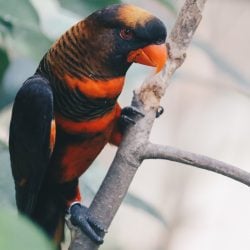 Bird & Parrot AnatomyJune 25, 2025How a Tiny Chemical Modification Makes Parrots Nature’s Living Paintings
Bird & Parrot AnatomyJune 25, 2025How a Tiny Chemical Modification Makes Parrots Nature’s Living Paintings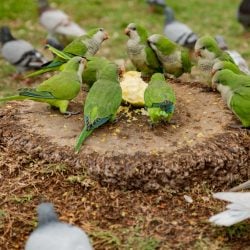 PigeonsJune 20, 2025How Do Parrots Thrive in Cities Outside Their Native Habitats?
PigeonsJune 20, 2025How Do Parrots Thrive in Cities Outside Their Native Habitats?
